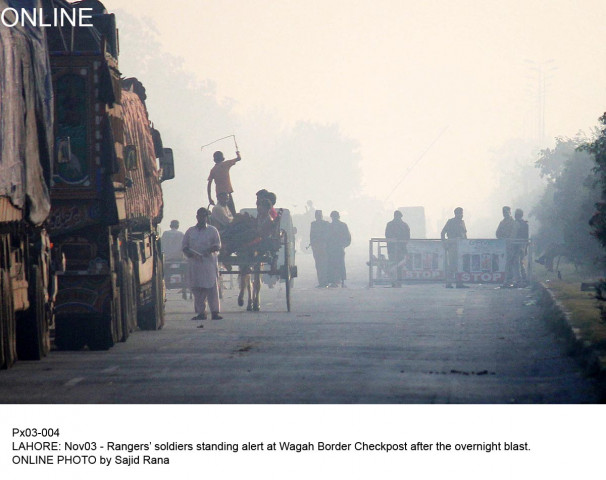Both India and Pakistan need to ease trade restrictions
PBC report highlights potential between the two countries

The volume of Indo-Pak trade through Attari has also witnessed a significant increase through the Integrated Check Post (ICP) at Attari border. PHOTO: ONLINE
In its latest report on Pakistan India trade, PBC, which represents Pakistan’s 47 largest enterprises including multinationals, said the country must build capacity to support its exports and protect the local industry from subsidised imports from India.
The report also said that details and time-frame of India’s promised concessions to Pakistan must be determined and considered before granting NDMA.
India’s concessions to Pakistan must be consistent with its concessions to other South Asian Free Trade Area (SAFTA) countries such as Bangladesh and Sri Lanka to ensure Pakistan gains fair access to the Indian market post-NDMA.

SAFTA came into force in 2006 resulting in tariff concessions by both, India and Pakistan along with the other South Asian neighbours.
India granted Most Favoured Nation (MFN) status to Pakistan in 1996, which Pakistan has to reciprocate being a signatory of the World Trade Organisation (WTO). The final step towards normalised trade relations between the two countries is thought to be NDMA status for India to be granted by Pakistan. The PBC study argues for caution in granting India NDMA given the current challenges faced in Pakistan-India trade.
Pakistan’s exports to India grew from $158 million in 2004 to $392 million in 2014, but it could only claim 0.09% of total Indian imports from the world in 2014. India’s exports to Pakistan grew much more significantly over the period under consideration, from $454 million to $2.1 billion, but it too could only claim 0.63% of total Pakistani imports from the world in 2014.
The study finds that there is significant potential for trade between Pakistan and India and offers analysis of high potential export products at 6-digit level.
Though there is no doubt of huge trade potential that currently lies dormant between the two countries, granting India NDMA without resolving the major issues like NTBs will result in a one-sided realisation of this potential, squarely in India’s favour.
India, in addition to possessing very high export capability to Pakistan, offers substantive support to its producers in the form of subsidies and export support schemes and maintains intractable NTBs to discourage imports, the report noted.
Pakistan also possesses considerable export potential to India, but it offers little support or protection to its producers and exporters, and has relatively low NTBs.
Published in The Express Tribune, July 16th, 2015.
Like Business on Facebook, follow @TribuneBiz on Twitter to stay informed and join in the conversation.



















COMMENTS
Comments are moderated and generally will be posted if they are on-topic and not abusive.
For more information, please see our Comments FAQ